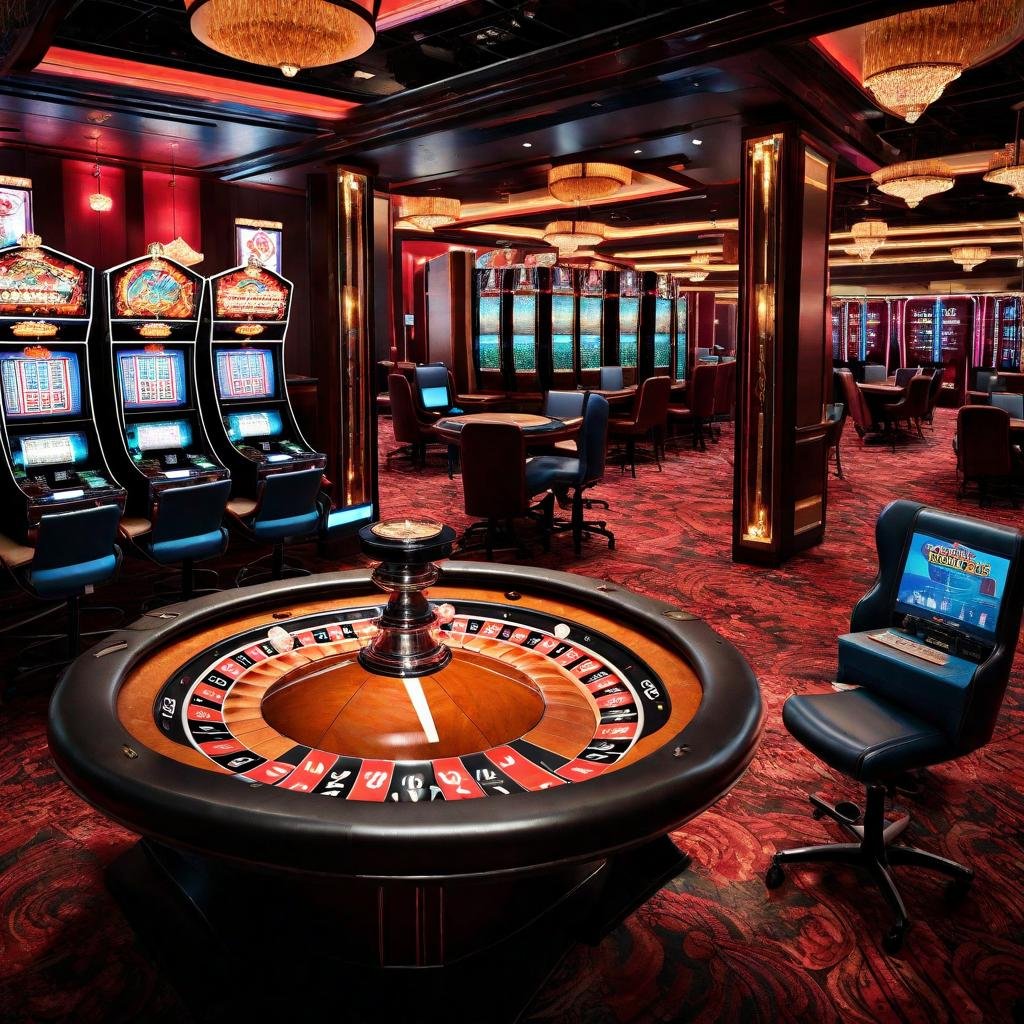
Casino games have captivated players for centuries, evolving from easy diversions to complex experiences that integrate luck, skill, and fun. From the early beginnings of gambling in societies including Mesopotamia and Rome to the glitzy corridors of contemporary casinos, the evolution of these games uncovers much about human nature and our connection with chance. As cultures blended and innovation has progressed, casino games have changed, illustrating shifts in society and advancements in gameplay.
The primitive versions of gambling likely included elementary games involving dice and wagering on the results of sporting events. As time passed, these primitive activities grew into more complex games like card games, roulette, and the variety of slot machines that populate the premises of casinos today. Each era brought its distinct regulations, design elements, and social relevance. At present, casino games persist in evolving with the rise of internet-based platforms, enabling players from all corners of the globe to participate in a collective experience, further merging the traditional with the digital age.
Ancient Beginnings of Casino Activities
Gaming games have foundations that reach back to historical civilizations, where betting was deeply entrenched in social traditions and cultural rituals. The first known instances of gambling developed in Mesopotamia around three thousand BC, involving simple dice activities made from knuckle material. These early games laid the basis for more complex gambling activities, showing humans’ natural urge to find fortune and entertainment through luck.
As societies progressed, so did their gambling interests. In early Chinese culture, around two thousand three hundred BC, objects were discovered that resembled early basic versions of a lottery game activity. More structured instances of gambling arose in the ancient Roman Empire, where games of luck were a popular recreation, often occurring in social gatherings. The Romans developed various betting activities, which included dice and table activities, highlighting the pervasive nature of betting across various economic strata.
With the movement of time, these primitive games shaped the evolution of contemporary casino games. In the medieval period, playing card games became prevalent in Europe, paving the way for the organized gaming establishments we know today. The shift from informal gambling to formal gambling in pubs and private homes marked a significant shift in how people interacted with activities of luck, leading to the eventual establishment of gaming houses as dedicated places for gambling. migliori siti scommesse non AAMS
The Growth of Modern Gambling Industry
The final 20th century marked a significant change in the realm of gaming, driven by tech innovations and changes in societal views towards wagering. The emergence of personal computers and the World Wide Web revolutionized the way players engaged with their favorite casino games. Online casinos emerged, enabling gamers to enjoy traditional casino classics like poker and 21 from the convenience of their own homes. This new online environment not only expanded availability to casino games but also drew in a newer crowd who found the comfort and variety appealing.
As digital gaming gained momentum, so did developments in casino tech. The creation of advanced software and graphics changed conventional casino games into captivating adventures. Players could now interact with authentic dealers through live streaming, importing the atmosphere of brick-and-mortar casinos directly into their homes. This blending of in-person play with online platforms created a unique hybrid experience that boosted the social aspect of gambling, making it possible for people to engage and challenge with others around the globe.
Furthermore, the rise of mobile gaming significantly changed the gambling environment. With the ubiquitous use of smartphones and touch devices, players can access their beloved casino games at any location, at any time. Mobile applications offer a vast array of options tailored for touchscreens, serving the dynamic daily life of contemporary gamers. This accessibility has led to growing involvement in casino games, contributing to the exponential growth of the gaming industry. As a result, the outlook of gambling continues to develop, adapting to technological advancements and changing player expectations.
The Impact of Technology on Casino Games
Technology’s advancement has greatly changed casino games, improving the overall gaming experience for players around the world. With the introduction of the internet, online casinos were created, allowing players to play their preferred games from the comfort of their homes. This shift not only made casino games more accessible but also expanded the variety of games offered, as online platforms could offer many different versions of traditional games without the physical constraints of physical casinos.
The rise of mobile technology further transformed the casino gaming landscape. With the proliferation, players can to play casino games whenever and wherever they want. This flexibility has led to the development of dedicated mobile applications and optimized websites that offer smooth gaming experiences. Additionally, advancements such as live dealer games have delivered the authentic atmosphere of a casino into players’ homes, connecting between physical and online gaming.
Moreover, advancements in AI and VR are paving the way for the next generation of casino games. AI enhances game design and player interaction, creating tailored experiences based on user behavior and preferences. Meanwhile, virtual reality provides immersive environments where players can interact in a simulated casino setting, making the gaming experience more exciting and realistic. As technology continues to evolve, the future of casino games looks promising, filled with endless possibilities for innovation and entertainment.